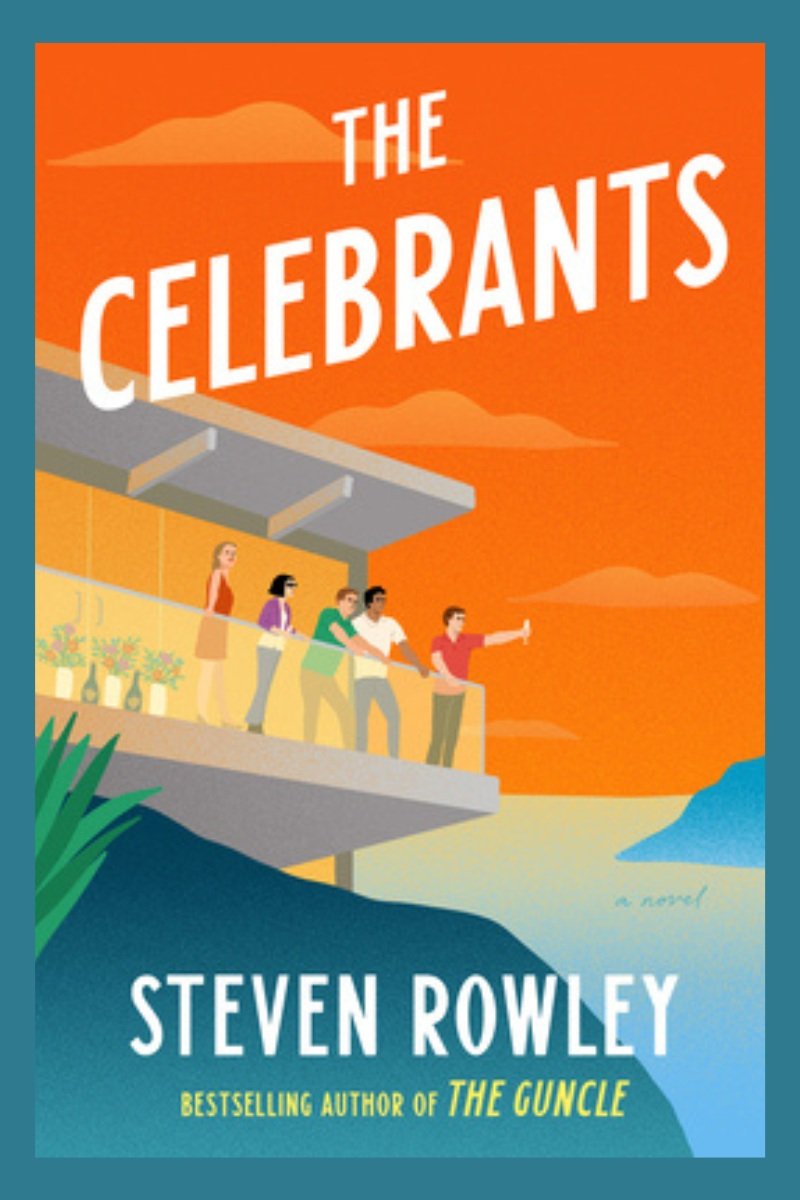Four Squares – Bobby Finger
Upon finishing Carter Sickels’ “Prettiest Star,” I lamented that while first wave HIV/AIDS epidemic stories are an important way to honor the lives lost, too frequently writers take a kitchen sink approach that dilutes the power of the narrative.
Many of these New York-set stories – including Abdi Nazemian’s “Like a Love Story,” Tim Murphy’s “Christodora” and Carol Rifka Brunt’s “Tell the Wolves I’m Home” - only offer one or two fresh perspectives in an otherwise recursive narrative.
This has made me wonder if there are still original stories to tell from this terrible era in queer history, which, I recognize, is nitpicking. Still, when you read a lot of queer fiction it’s easy to tell who is writing for the gays (nuance, depth) versus the masses (shame, saviorism).
All this to say, I initially wasn’t going to read “Four Squares.” While not explicitly called out in the dustjacket, it was clear given the main character’s age and location, HIV/AIDS was going to feature heavily into the plot.
But, then Bobby Finger did the near impossible. He somehow merged contemporary and historical fiction, paired it with a dash of literary depth, and wrapped it in a cozy sheen perfect for a lazy day on the beach.
Yes, dear readers, he somehow made reading about sustained, collective trauma heart-warming. Color me surprised!
Told in alternating timelines set 30 years apart, “Squares” follows a cautious Artie Anderson navigating life and love in New York City.
In 1992, he’s struggling with relationships and a career at the height of AIDS panic, while living vicariously through his chosen family, Adam and Kimberly. A burgeoning relationship with the enigmatic, bisexual Abe, jolts him awake and challenges him to leave his carefully constructed bubble.
When we meet a 60-year-old Artie in 2022, he’s a successful ghostwriter, living a quiet but lonely life. When an injury pushes him to almost near hermit status, he’s prompted to join the LGBTQ+ senior center, GALS. Here he learns there’s still a lot of life left for him — and other silver-haired queers — and that you’re never too old to start again.
You may be saying, “Andy, that doesn’t sound very original.” Well, you’re not entirely wrong. There are plenty of the tropes you’d expect, but rather than emphasizing tragedy — and there’s plenty of it in Artie’s life — it’s focused on survival.
While the novel doesn't shy away from the harsh realities of the AIDS epidemic, it narrows in on the emotional impact of those left behind. Do you ever truly recover from watching friends die? How do you manage guilt from living but not embracing opportunities? This is the core of the story, especially as we see Artie continue to battle his anxieties and self-doubt over decades.
I don’t want to oversell “Squares” as it is far from perfect. It’s akin to a Steven Rowley novel — “pick-me-up lit” — but without the slapstick humor or stereotypes.
While the dialogue isn't great, the prose is smooth and engaging. Some chapters feel drawn out, many supporting characters are caricatures or undeveloped (especially Abe) and the flashbacks could have delved deeper into Artie's psyche for a more profound emotional connection.
Still, these are relatively minor quibbles in an otherwise fast-moving story that celebrates life, love and the enduring power of friendship. People may come and go, but you can keep them alive by sharing their memories with others.
David Pittu provided the narration, and while he did a great job with Artie, his portrayal of female-identifying and nonbinary characters was borderline problematic. This is one that’s probably better as a physical read.
Rating (story): 4/5 stars
Rating (narration): 3/5 stars
Format: Audiobook (library loan)
Dates read: June 23 – June 26, 2024
Multi-tasking: Good to go. The story is easy to follow and Finger writes with a breezy, relaxed quality that sucks you in. Still, there is subtlety in the relationships, so you want to be able to pay attention.





